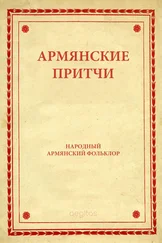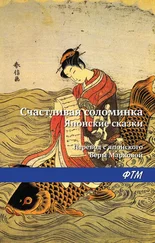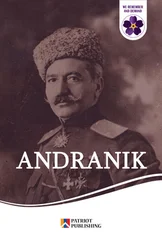Народное творчество (Фольклор) - A plain and literal translation of the Arabian nights entertainments, now entituled The Book of the Thousand Nights and a Night. Volume 7 (of 17)
Здесь есть возможность читать онлайн «Народное творчество (Фольклор) - A plain and literal translation of the Arabian nights entertainments, now entituled The Book of the Thousand Nights and a Night. Volume 7 (of 17)» — ознакомительный отрывок электронной книги совершенно бесплатно, а после прочтения отрывка купить полную версию. В некоторых случаях можно слушать аудио, скачать через торрент в формате fb2 и присутствует краткое содержание. Жанр: Сказка, Старинная литература, foreign_antique, на английском языке. Описание произведения, (предисловие) а так же отзывы посетителей доступны на портале библиотеки ЛибКат.
- Название:A plain and literal translation of the Arabian nights entertainments, now entituled The Book of the Thousand Nights and a Night. Volume 7 (of 17)
- Автор:
- Жанр:
- Год:неизвестен
- ISBN:нет данных
- Рейтинг книги:5 / 5. Голосов: 1
-
Избранное:Добавить в избранное
- Отзывы:
-
Ваша оценка:
- 100
- 1
- 2
- 3
- 4
- 5
A plain and literal translation of the Arabian nights entertainments, now entituled The Book of the Thousand Nights and a Night. Volume 7 (of 17): краткое содержание, описание и аннотация
Предлагаем к чтению аннотацию, описание, краткое содержание или предисловие (зависит от того, что написал сам автор книги «A plain and literal translation of the Arabian nights entertainments, now entituled The Book of the Thousand Nights and a Night. Volume 7 (of 17)»). Если вы не нашли необходимую информацию о книге — напишите в комментариях, мы постараемся отыскать её.
A plain and literal translation of the Arabian nights entertainments, now entituled The Book of the Thousand Nights and a Night. Volume 7 (of 17) — читать онлайн ознакомительный отрывок
Ниже представлен текст книги, разбитый по страницам. Система сохранения места последней прочитанной страницы, позволяет с удобством читать онлайн бесплатно книгу «A plain and literal translation of the Arabian nights entertainments, now entituled The Book of the Thousand Nights and a Night. Volume 7 (of 17)», без необходимости каждый раз заново искать на чём Вы остановились. Поставьте закладку, и сможете в любой момент перейти на страницу, на которой закончили чтение.
Интервал:
Закладка:
She continued, It hath reached me, O auspicious King, that when Jamrkan fell upon them with his men and steeds and camels, and the camp lay sleeping, the idolaters started up in confusion and, snatching up their arms, fell upon one another with smiting, till the most part was slaughtered. And when the day broke, they looked and found no Moslem slain, but saw them all on horseback, armed and armoured; wherefore they knew that this was a sleight which had been played upon them, and Kurajan cried out to the remnant of his folk, “O sons of whores, what we had a mind to do with them, that have they done with us and their craft hath gotten the better of our cunning.” And they were about to charge when, lo and behold! a cloud of dust rose high and walled the horizon-sky, when the wind smote it, so that it spired aloft and spread pavilion-wise in the lift and there it hung; and presently appeared beneath it the glint of helmet and gleam of hauberk and splendid warriors, baldrick’d with their tempered swords and holding in rest their supple spears. When the Kafirs saw this, they held back from the battle and each army sent out, to know the meaning of this dust, scouts, who returned with the news that it was an army of Moslems. Now this was the host of the Mountain-Ghul whom Gharib had despatched to Jamrkan’s aid, and Sa’adan himself rode in their van. So the two hosts of the True Believers joined company and rushing upon the Paynimry like a flame of fire, plied them with keen sword and Rudaynian spear and quivering lance, what while day was darkened and eyes for the much dust starkened. The valiant stood fast and the faint-hearted coward fled and to the wilds and the wolds swift sped, whilst the blood over earth was like torrents shed; nor did they cease from fight till the day took flight and in gloom came the night. Then the Moslems drew apart from the Miscreants and returned to their tents, where they ate and slept, till the darkness fled away and gave place to smiling day; when they prayed the dawn-prayer and mounted to battle. Now Kurajan had said to his men as they drew off from fight (for indeed two-thirds of their number had perished by sword and spear), “O folk, to-morrow, I will champion it in the stead of war where cut and thrust jar, and where braves push and wheel I will take the field.” So, as soon as light was seen and morn appeared with its shine and sheen, took horse the hosts twain and shouted their slogans amain and bared the brand and hent lance in hand and in ranks took stand. The first to open the door of war was Kurajan, who cried out, saying, “Let no coward come out to me this day nor craven!” Whereupon Jamrkan and Sa’adan stood by the colours, but there ran at him a captain of the Banu Amir and the two drave each at other awhile, like two rams butting. Presently Kurajan seized the Moslem by the jerkin under his hauberk and, dragging him from his saddle, dashed him to the ground where he left him; upon which the Kafirs laid hands on him and bound him and bore him off to their tents; whilst Kurajan wheeled about and careered and offered battle, till another captain came out, whom also he took prisoner; nor did he leave to do thus till he had made prize of seven captains before mid-day. Then Jamrkan cried out with so mighty a cry, that the whole field made reply and heard it the armies twain, and ran at Kurajan with a heart in rageful pain, improvising these couplets:—
Jamrkan am I! and a man of might,
Whom the warriors fear with a sore affright:
I waste the forts and I leave the walls
To wail and weep for the wights I smite:
Then, O Kurajan, tread the rightful road
And quit the paths of thy foul unright:
Own the One True God, who dispread the skies
And made founts to flow and the hills pegged tight:
An the slave embrace the True Faith, he’ll ’scape
Hell-pains and in Heaven be deckt and dight!
When Kurajan heard these words, he snarked and snorted and foully abused the sun and the moon and drave at Jamrkan, versifying with these couplets:—
I’m Kurajan, of this age the knight;
And my shade to the lions of Shara’ 17 17 Al-Shara’, a mountain in Arabia.
is blight:
I storm the forts and snare kings of beasts
And warriors fear me in field of fight;
Then, Harkye Jamrkan, if thou doubt my word,
Come forth to the combat and try my might!
When Jamrkan heard these verses, he charged him with a stout heart and they smote each at other with swords till the two hosts lamented for them, and they lunged with lance and great was the clamour between them: nor did they leave fighting till the time of mid-afternoon prayer was passed and the day began to wane. Then Jamrkan drave at Kurajan and smiting him on the breast with his mace, 18 18 See vol. vi., 249. “This (mace) is a dangerous weapon when struck on the shoulders or unguarded arm: I am convinced that a blow with it on a head armoured with a salade (cassis cælata, a light iron helmet) would stun a man” (says La Brocquière).
cast him to the ground, as he were the trunk of a palm-tree; and the Moslems pinioned him and dragged him off with ropes like a camel. Now when the Miscreants saw their Prince captive, a hot fever-fit of ignorance seized on them and they bore down upon the True Believers thinking to rescue him; but the Moslem champions met them and left most of them prostrate on the earth, whilst the rest turned and sought safety in flight, seeking surer site, while the clanking sabres their backsides smite. The Moslems ceased not pursuing them till they had scattered them over mount and wold, when they returned from them to the spoil; whereof was great store of horses and tents and so forth:—good look to it for a spoil! Then Jamrkan went in to Kurajan and expounded to him Al-Islam, threatening him with death unless he embraced the Faith. But he refused; so they cut off his head and stuck it on a spear, after which they fared on towards Oman 19 19 Oman, which the natives pronounce “Amán,” is the region best known by its capital, Maskat. These are the Omana Moscha and Omanum Emporium of Ptolemy and the Periplus. Ibn Batutah writes Ammán, but the best dictionaries give “Oman.” (N.B.—Mr. Badger, p. 1, wrongly derives Sachalitis from “Sawáhíly”: it is evidently “Sáhili.”) The people bear by no means the best character: Ibn Batutah (fourteenth century) says, “their wives are most base; yet, without denying this, their husbands express nothing like jealousy on the subject.” (Lee, p. 62.)
city. But as regards the Kafirs, the survivors returned to Jaland and made known to him the slaying of his son and the slaughter of his host, hearing which he cast his crown to the ground and buffeting his face, till the blood ran from his nostrils, fell fainting to the floor. They sprinkled rose-water on his head, till he came to himself and cried to his Wazir, “Write letters to all my Governors and Nabobs, and bid them leave not a smiter with the sword nor a lunger with the lance nor a bender of the bow, but bring them all to me in one body.” So he wrote letters and despatched them by runners to the Governors, who levied their power and joined the King with a prevailing host, whose number was one hundred and eighty-thousand men. Then they made ready tents and camels and noble steeds and were about to march when, behold, up came Jamrkan and Sa’adan the Ghul, with seventy thousand horse, as they were lions fierce-faced, all steel-encased. When Jaland saw the Moslems trooping on he rejoiced and said, “By the virtue of the Sun, and her resplendent light, I will not leave alive one of my foes; no, not one to carry the news, and I will lay waste the land of Al-Irak, that I may take my wreak for my son, the havoc-making champion bold; nor shall my fire be quenched or cooled!” Then he turned to Ajib and said to him, “O dog of Al-Irak, ’twas thou broughtest this calamity on us! But by the virtue of that which I worship, except I avenge me of mine enemy I will do thee die after foulest fashion!” When Ajib heard these words he was troubled with sore trouble and blamed himself; but he waited till nightfall, when the Moslems had pitched their tents for rest. Now he had been degraded and expelled the royal camp together with those who were left to him of his suite: so he said to them, “O my kinsmen, know that Jaland and I are dismayed with exceeding dismay at the coming of the Moslems, and I know that he will not avail to protect me from my brother nor from any other; so it is my counsel that we make our escape, whilst all eyes sleep, and flee to King Ya’arub bin Kahtán, 20 20 The name I have said of a quasi historical personage, son of Joktan, the first Arabist and the founder of the Tobbá (“successor”) dynasty in Al-Yaman; while Jurham, his brother, established that of Al-Hijaz. The name is probably chosen because well-known.
for that he hath more of men and is stronger of reign.” They, hearing his advice exclaimed “Right is thy rede,” whereupon he bade them kindle fires at their tent-doors and march under cover of the night. They did his bidding and set out, so by daybreak they had already fared far away. As soon as it was morning Jaland mounted with two hundred and sixty thousand fighting-men, clad cap-à-pie in hauberks and cuirasses and strait-knit mail-coats, the kettle-drums beat a point of war and all drew out for cut and thrust and fight and fray. Then Jamrkan and Sa’adan rode out with forty-thousand stalwart fighting-men, under each standard a thousand cavaliers, doughty champions, foremost in champaign. The two hosts drew out in battles and bared their blades and levelled their limber lances, for the drinking of the cup of death. The first to open the gate of strife was Sa’adan, as he were a mountain of syenite or a Marid of the Jinn. Then dashed out to him a champion of the Infidels, and the Ghul slew him and casting him to the earth, cried out to his sons and slaves, saying, “Light the fire and roast me this dead one.” They did as he bade and brought him the roast and he ate it and crunched the bones, whilst the Kafirs stood looking on from afar; and they cried out, “Oh for aid from the light-giving Sun!” and were affrighted at the thought of being slain by Sa’adan. Then Jaland shouted to his men, saying, “Slay me yonder loathsome beast!” Whereupon another captain of his host drove at the Ghul; but he slew him, and he ceased not to slay horseman after horseman, till he had made an end of thirty men. With this the blamed Kafirs held back and feared to face him, crying, “Who shall cope with Jinns and Ghuls?” But Jaland raised his voice saying, “Let an hundred horse charge him and bring him to me, bound or slain.” So an hundred horse set upon Sa’adan with swords and spears, and he met them with a heart firmer than flint, proclaiming the unity of the Requiting King, whom no one thing diverteth from other thing. Then he cried aloud, “Allaho Akbar!” and, smiting them with his sword, made their heads fly and in one onset he slew of them four-and-seventy whereupon the rest took to flight. So Jaland shouted aloud to ten of his captains, each commanding a thousand men, and said to them, “Shoot his horse with arrows till it fall under him, and then lay hands on him.” Therewith ten thousand horse drove at Sa’adan who met them with a stout heart; and Jamrkan, seeing this, bore down upon the Miscreants with his Moslems, crying out, “God is Most Great!” Before they could reach the Ghul, the enemy had slain his steed and taken him prisoner; but they ceased not to charge the Infidels, till the day grew dark for dust and eyes were blinded, and the sharp sword clanged while firm stood the valiant cavalier and destruction overtook the faint-heart in his fear; till the Moslems were amongst the Paynims like a white patch on a black bull.–And Shahrazad perceived the dawn of day and ceased saying her permitted say.
Интервал:
Закладка:
Похожие книги на «A plain and literal translation of the Arabian nights entertainments, now entituled The Book of the Thousand Nights and a Night. Volume 7 (of 17)»
Представляем Вашему вниманию похожие книги на «A plain and literal translation of the Arabian nights entertainments, now entituled The Book of the Thousand Nights and a Night. Volume 7 (of 17)» списком для выбора. Мы отобрали схожую по названию и смыслу литературу в надежде предоставить читателям больше вариантов отыскать новые, интересные, ещё непрочитанные произведения.
Обсуждение, отзывы о книге «A plain and literal translation of the Arabian nights entertainments, now entituled The Book of the Thousand Nights and a Night. Volume 7 (of 17)» и просто собственные мнения читателей. Оставьте ваши комментарии, напишите, что Вы думаете о произведении, его смысле или главных героях. Укажите что конкретно понравилось, а что нет, и почему Вы так считаете.












